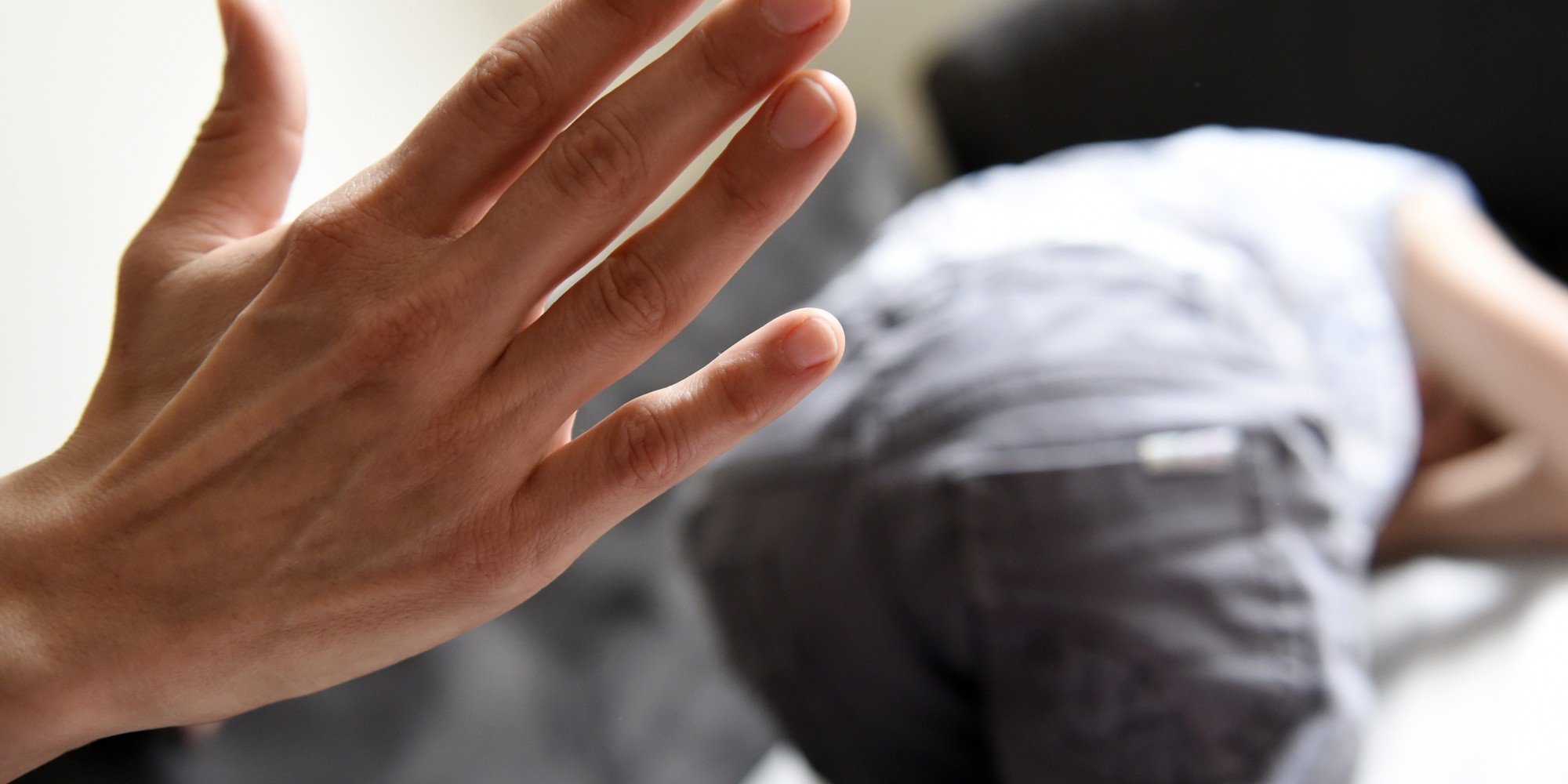
Most everyone has heard or used the phrase, “I was spanked and I turned out ok.”
This expression represents acceptance of kid hitting. It sits at the heart of American spanking culture and conjures similar phrases like, “My parents spanked me and that is why I spank my kids,” and “if more children were spanked there would be fewer brats running around.”
Cliché’s such as these not only promote spanking acceptance but also encourages and praises this type of punishment, which research evidence abundantly suggests can damage children.
Parents use corporal punishment to allegedly correct unacceptable behavior, stop a child from disobeying or hurting themselves, but they usually "do not intend" to injure the child. They only want to command the child’s attention and correct bad or dangerous behavior.
Definition and statistics of spanking
Spanking generally include soft swats on the buttocks, use of implements like a board or rod or flyswatter. It could also be a slap across the face or other parts of the body. Some may even beat their child with a belt and call it spanking.
One issue here is that parents and professionals disagree on a clear definition of spanking, especially since most parents refer to any physical discipline as spanking in order to justify the act. In reality, spanking is just a euphemism for hitting.
The American Academy of Pediatrics defines spanking precisely as “striking a child with an open hand on the buttocks or extremities with the intention of modifying behavior without causing physical injury."
Taking this definition into account—and as previously mentioned—the prevalence of spanking is high. Studies suggest a decline in spanking the last few years, but the majority of parents still administer it.
According to a Harris Poll conducted in 2013, 4 in 5 or 81% of parents said it is sometimes appropriate to spank children. Two thirds, or 67% say they were spanked as a child, which is down from 80% in 1995 (Most polls and studies vary between 65% and 90% today).
A Columbia University study and a similar Harris poll said most parents spanked their children consistently at ages 3-5. The poll also validated the cycle of spanking as true. Roughly 73% of parents who spank were spanked as children, whereas 25% were not.
This frequency of spanking implies that many people see it as a valid form of punishment. But why?

Hitting in a calm manner
Proponents of spanking argue spanking is acceptable if parents understand what they are doing, and they perform it in a calm manner. They argue if parents explain to their children why they are being spanked for, it is a reasonable form of punishment. Problems only arise, say pro-spankers, when people hit out of anger or impatience.
In a 2014 Time article, Dr. Jared Pingleton defended this view. “If he or she deliberately disobeys, the child should be informed of the upcoming spanking and escorted to a private area. The spanking should be lovingly administered in a clear and consistent manner.”
Although to hit in a loving manner is an odd and perplexing perspective, there is some evidence to support Pingleton’s argument.
Dr. Robert Larzelere and his colleagues at Oklahoma State University conducted a positive study on spanking. It concluded that “two open hand swats to the buttocks after a child has defied an authority figure led to greater reduction of child defiance or anti-social behavior than 10 of 13 alternative discipline techniques.”
Another argument against the non-hitting position suggests that the anti-spanking studies cannot prove whether the practice directly causes misbehavior, mental illness, hostility or other problems.
A New York Times Article also defended this idea. “Studies cited by opponents of corporal punishment, Dr. Baumrind contended, often do not adequately distinguish the effects of spanking, as practiced by non-abusive parents, from the impact of severe physical punishment and abuse."
Spanking causes long term harm
Opponents of spanking have a different perspective, though—and at least one major institution altogether discourages the practice of spanking.
In a 2012 pressroom comment, The American Pediatric Association said, “The use of physical punishment to discipline children has been linked to a range of mental health problems and is strongly opposed by the American Academy of Pediatrics.”
Not only have a few articles hinted spanking causes mental health problems; dozens of scientific journals have stated that spanking causes a variety of long term affects, including hostility and use of violence through multiple generations.
A 2012 article from the American Psychological Association cited one such piece. “A study published last year in Child Abuse and Neglect revealed an intergenerational cycle of violence in homes where physical punishment was used. Researchers interviewed parents and children age 3 to 7 from more than 100 families. Children who were physically punished were more likely to endorse hitting as a means of resolving their conflicts with peers and siblings.”
There are more damning studies than ones that suggest hostility or mental health problems. Newer research claims physical punishment damages a child’s brain. These studies confirmed children who were spanked (received harsh corporal punishment) were likely to lose some grey matter tissue.
A 2014 CNN Article said, “Researchers found children who were regularly spanked had less gray matter in certain areas of the prefrontal cortex that have been linked to depression, addiction and other mental health disorders…”

Where the debate stands
This is where the current debate stands; it shuffles between experts and parents marshaling these arguments, or similar ones, based on the evidence.
Overall, advocates of spanking contend that spanking can be used if done gently and with love and care, but very little data supports this view. They also cite most evidence against spanking is only softly linked, and not an exact cause.
Still, most pro-spanking researchers do not advocate harsh corporal punishment with implements, as this tends to "escalate to abuse." Finally, pro-spankers complain that anti-spanking studies often neglect to define the differences between spanking and harsher forms of physical punishment.
Anti-Spankers are winning
By contrast, anti-spankers argue there is an immediate risk spanking could cause permanent brain damage, so they ask: “Is hitting your child worth the risk of permanently damaging their brain”? Anti-spankers say that even if their data is sometimes unclear, there are dozens of studies that refute spanking and only a few that defend it.
Leading researcher Elizabeth Gershoff of the University of Texas echoed this, “I can just about count on one hand the studies that have found anything positive about physical punishment and hundreds that have been negative.”
This means parents should weigh and consider the evidence before rushing to the conclusion they should “spank because their parents spanked them,” or because they “were spanked and turned out okay.”
These phrases hold little water in the face of most of the evidence; and even though there is a minority of evidence that suggests "soft" spanking may help, the majority of the research literature rejects the practice as dangerous. If a person is saying that they were hit and they turned out ok as a justification for hitting their children, they likely did not turn out ok.
It is time to stop hitting children. The evidence is in.
Break the cycle.

My name is Sterlin. Follow me @ Psychologic-Anarchist. I also run the Psychologic-Anarchist Facebook page and produce many YouTube videos. My interests lie in the intersection of counseling psychology and anarchism. I write about the depredations of psychiatry, and also the new philosophy of compassionate anarchism. We have a large community devoted to discussing psychology and relational voluntaryism.

